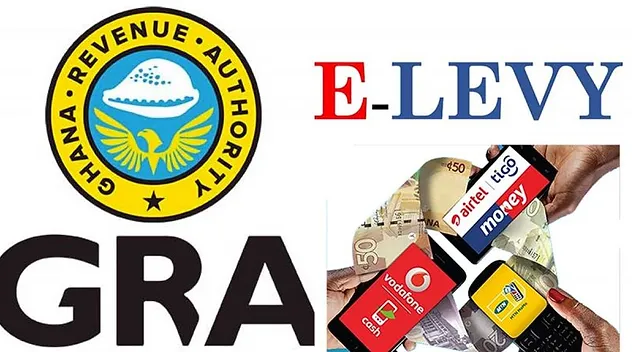
Politics of the

.
Strong opposition from the minority in parliament and significant concern among Ghanaians were expressed when the Akufo-Addo government announced in November 2021, during the presentation of the Fiscal Year 2022 budget, that it planned to introduce an Electronic Transaction Levy (E-Levy) on all electronic transfers of money.
The intended implementation date of January 1, 2022, and the announced rate of 1.75 percent were postponed due to the closely divided parliament (137-137-1).
After being officially enacted into law, the charge was lowered to 1.5% and went into effect in May 2022. In 2023, the rate was further lowered to 1%.
The National Democratic Congress (NDC) and the New Patriotic Party (NPP), the two major political parties in our country, have pledged to eliminate the E-Levy in the event that they win the presidency. Indeed, at a speech titled “Ghana At A Crossroads” on May 2, 2022, the NDC candidate made this commitment. On February 7, 2024, the NPP presidential candidate announced his plans in a significant address on economic policy following his acceptance of the candidature.
E-Levy’s argument was made
According to responses to E-Levy’s Frequently Asked Questions (FAQs) in a Ministry of Finance document, this government offered two policy justifications for the levy: first, to increase domestic tax collection and broaden the tax base; and second, to give everyone a chance to contribute to the development of the country.

The government projected a 37 billion cedi (GH₵37b) deficit for FY 2022 when it revealed plans to impose an E-Levy. This includes the anticipated revenue from the E-Levy, which came to over seven billion cedis (GH₵6,963,386,254). Additionally, assuming the anticipated revenue materialised, it would dramatically lower the budget deficit by 19% between FY 2022 and FY 2025. Furthermore, the E-Levy was projected to generate approximately 9% of domestic tax income. The data used in Appendix 3A: Summary of Central Government Operations from the FY 2022 budget served as the foundation for this analysis and computations.
It was not an option to move forward with this E-Levy. The Ministry of Finance made it clear in another FAQ document explaining why the government had to seek a bailout that the E-Levy was not going to be terminated because of any expected fiscal inflows from the IMF. E-Levy politics and the 2024 elections. The government’s sense of fiscal and economic urgency was further exacerbated by the decision to seek a bailout from the International Monetary Fund (IMF) in July 2022.
The political climate for the levy was challenging due to popular opinion. The results of Afrobarometer Round 9 (conducted in 2022) showed that Ghanaians were strongly opposed to the E-Levy: a) seven out of ten (74%) disapproved or strongly disapproved; b) seventy-two percent of rural and seventy-six percent of urban dwellers disapproved; c) disapproval varied between 53 and 90 percent across the sixteen regions; d) eight out of ten (76%) strongly agreed or agreed that the levy was a bad idea and burdensome for the poor and regular citizens; and c) only nine percent (9%) expressed “they were very confident that government will fulfill its pledge to use the revenue generated to fund development.”
Since the Afrobarometer was conducted two years ago, it is possible that these opinions have evolved. It remains to be seen if Ghanaians’ resistance to the levy has lessened. But if these opinions hold true in 2024, I can understand why repealing politics seems enticing.
Both the NDC and the NPP have pledged repeal, thus, no party stands to gain politically. This is an uncommon instance of bipartisan consensus on a topic that was the subject of fierce partisanship when it was first proposed.
Beyond the political ramifications, the following are some possible financial effects of the repeal, as determined by my examination of data from the FY 2024 budget’s Appendix 3A: Summary of Central Government Operations.
Suppose the assumptions used to build the budget stay the same. In that case, the following will occur over the course of the next three fiscal years (FY 2025, FY 2026, and FY 2027) combined: a) a total revenue loss of approximately GH₵ 8.3 billion; b) a total budget deficit of approximately GH₵ 184 billion; and c) forgoing a twenty-seven percent (27%) growth in a key source of domestic revenue.
Additionally, keep in mind the possible expenses as well as all the commitments that both sides are making.
Let me restate a recent point: a) strong economic growth; b) increased mobilisation of domestic revenue; c) handling revenue leakages; d) addressing excessive government spending; and so on. All of these might change.








